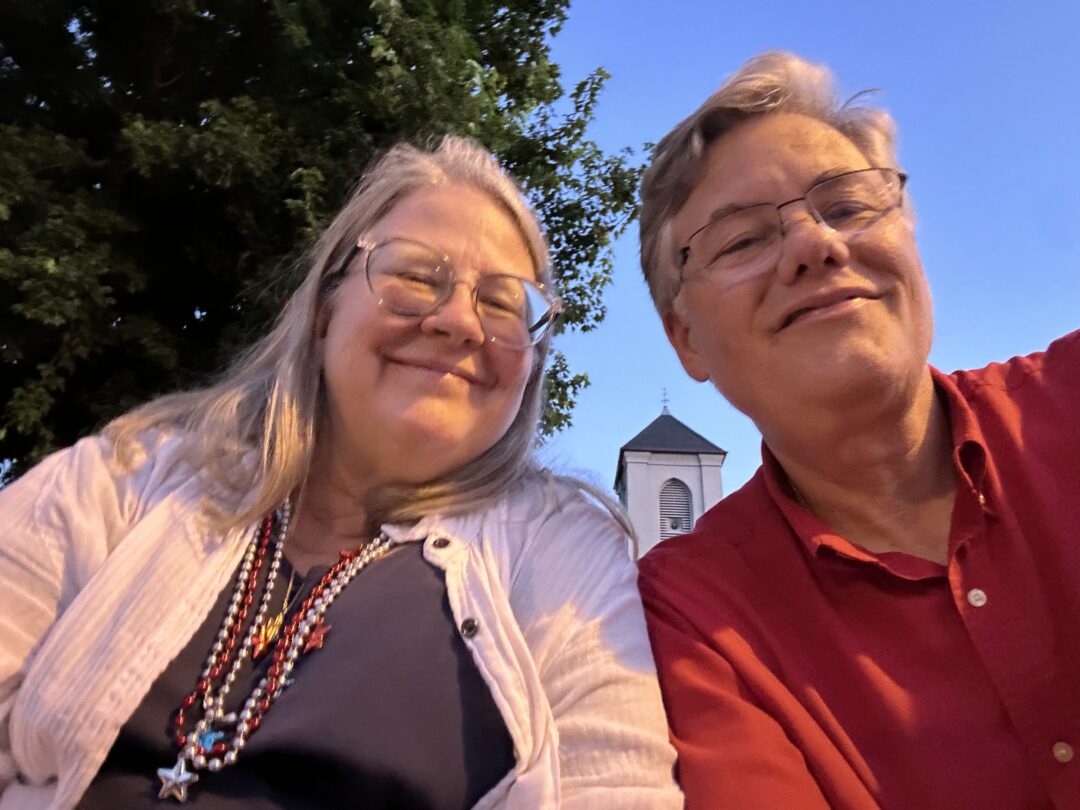Matt Matthews, a co-pastor of the Waldensian Presbyterian Church in Valdese, North Carolina, wrote the following reflection in the wake of the recent flooding in Texas.
The flooding in Texas has me wringing my hands and pacing circles.
My compassion fatigue has already put me on life-support. The seemingly unending war in Ukraine; the cataclysm that is the Middle East—a land flowing with milk, honey, and blood; refugees fleeing poverty or violence or both, finding no welcome in other lands where they hope to make better lives for their children; political talk bereft of kindness and respect. The world’s ills already had become a run-on-sentence of broken glass in my veins.
And now the Guadalupe.
Usually a languid, green stream, the river rose 26-feet in 45-minutes, cresting over 37-feet in Hunt, Texas, flowing in a torrent matching Niagara Falls. Some cabins floated off their foundations before dawn on what promised to be a festive, albeit rainy, July Fourth. Camps of children were swept away. Over 130 people died. At least three are still missing.
A friend wrote about how she attended a girls’ camp for most of her childhood. She became a counselor-in-training one summer, then took on the role of counselor the next. She became a certified lifeguard. She taught canoeing. She kept kids safe from what she calls the dark lake.
“When the children in our care are in trouble,” writes Julie Hester on Substack, “we might hope we will spring into heroic action. We might prepare for some scenarios even, and think we know what to do. But the truth is, the reality of the emergency might overwhelm our preparation.”
When tragedy strikes, the realist in me fears being caught flat-footed. I might run away, come unglued, or—and this terrifies me—I might simply freeze.
But the hero within bristles.
When tragedy threatens, I imagine calmly guiding my charges safely to the other side, wherever the other side happens to be. I’ll rise above the fray on wings like eagles—to borrow words from one of my Old Testament heroes. If there’s a stallion, I’ll be on it. If you see a flaming dragon swooping in, I’ll be at the reins.
Such is the savior complex under which I’ve tussled most of my life. Remember James Thurber’s hero-daydreams in “The Secret Life of Walter Mitty”? I am that man.
My swagger serves only to disguise my feelings of helplessness and lack of actual courage.
No matter how brave or smart we imagine ourselves, we cannot stop or dodge every tragedy. And no matter what, flood waters often rise above our poor heads.
When I was a young parent, children played one Sunday in the church hall. Joseph fell, hurt his knee, and hobbled to me in distress. I comforted him in some way, then released him gently back into the swirling stream of children at play.
An older father sitting near watched this exchange between me and my five-year-old. I remember exactly what he said. “I miss those days when I could make everything better with a hug and a kiss.”
His kids were teenagers. They had acne, homework, and car keys. They had incurred hurts a Band-Aid and a kiss on the top of the head couldn’t fix. Intellectually I understood this. No parents can fully protect their children. A parent’s calling is to nudge their fledglings out of the nest so they can fly alone. Holding on to our kids is part of the job. Letting go is the other. I can remember feeling glad I wasn’t there. Yet.
We grieve when we can’t protect the children entrusted to our care. Some kids made it out of the Guadalupe alive on July fourth. But not all.
Next time, we say, we’ll be more prepared. We will have installed those expensive high-decibel warning sirens along this river long-known for flash floods. We’ll more closely monitor the weather. Next time, we’ll better minimize risk.
I’m reminded many residing along the Gulf of Mexico did exactly that years ago when they moved to the mountains of Western North Carolina to escape the constant wrath of hurricanes. Such smart relocations made perfect sense. Not many predicted our mountains would do little to stop the remnants of storms like Helene. And our beautiful high ground was not impervious to mudslides and historic flooding.
In my dreams, I am Rocky Balboa, bloodied but unbowed, slugging away at victory for all. I am Florence Nightingale, salving a fevered brow with a cool cloth.
When I wake up, however, I’m just me. I don’t look anything like a superhero.
“While we don’t know what we might have done, we have some choices about what we do now,” Julie Hester counsels. And what about our grief? “Be gentle with yourselves. Take deep breaths. Take a walk. Send donations somewhere. Hug someone. Ration the news reports. Create something.”
Is it possible, in the savage aftermath of yet another calamity, that I could harness my grief for some useful good? I hope so.
When people of faith speak about a new heaven and a new earth, and as they find respite in ‘thin places’ (like in the rugged Hill Country along the Guadalupe River) where human and spiritual realms seem mystically to meet, I think this is the sort of harmony they experience: everybody leaning in, offering what they have, doing what they can—all in the presence of the unseen Other, awe and wonder prickling.
Imagine if a hundred million of us around the globe tried to do just that, and we convinced another hundred million to do the same.
The author, Matt Matthews, and his wife, Rachel Matthews, pictured together below, began service as co-pastors at the Waldensian Presbyterian Church on July 1, 2024. Matt describes the Waldensian Presbyterian Church as a “cool congregation of the PC(USA).”

